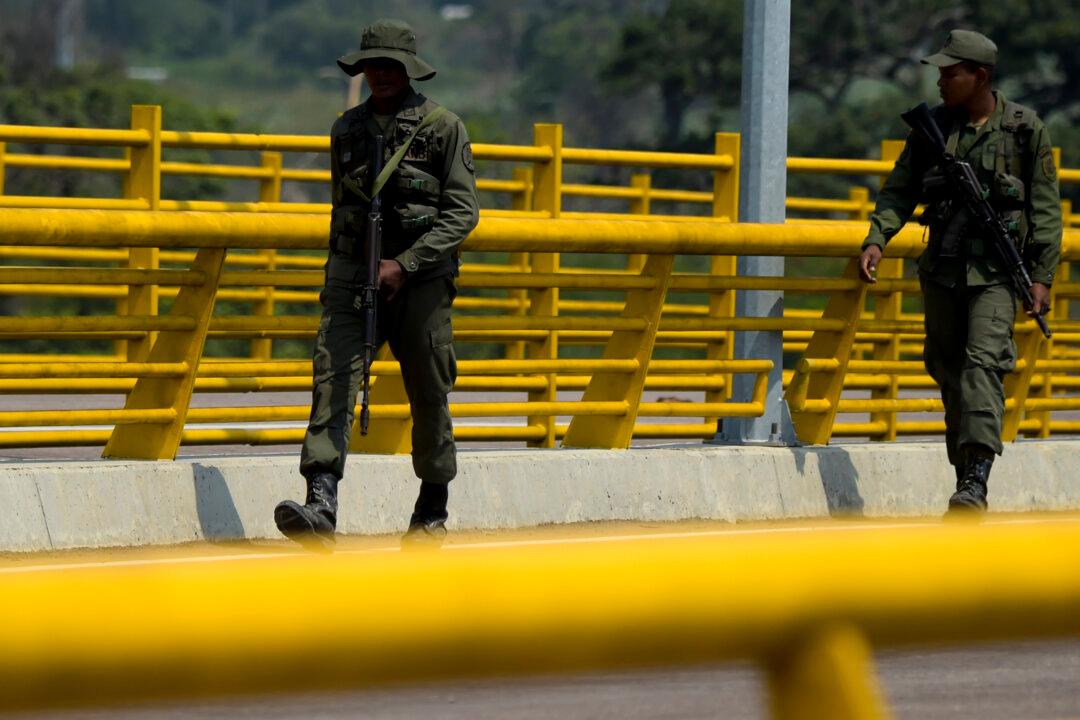Embattled Venezuelan dictator Nicolás Maduro still has the backing of the military, despite new documents revealing that thousands of soldiers had deserted him in recent years as the regime struggled to temper the erosion of its armed forces.
Two documents obtained by Bloomberg highlight how Maduro’s regime was already attempting to stop a growing number of desertions even before U.S.-backed opposition leader Juan Guaidó had called on the military to break from Maduro.





